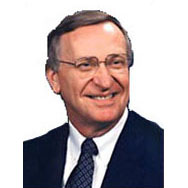
I attended the annual meeting of the National Conference of State Legislators (NCSL) recently where Sir Kenneth Robinson, noted author and speaker, spoke about the need for revolution–not reform–in public education. (Interview with Sir Kenneth Robinson) He expressed concern that schools are organized on an industrial model–I have described it as a factory–where all the children are expected to come out alike at the end of schooling. At the same time we recognize in society the special talents individuals may possess, the orientation of many schools for too many years has been to ignore individual differences and to have identical expectations for all students. Schools cannot operate successfully as a factory of the past where every student becomes the same widget, but schools need to adopt a mass customization model where every student is recognized as a unique being.
As Sir Kenneth Robinson expressed it, “education is meant among other things to develop people’s natural abilities, and I believe it really doesn’t do that…To focus on them in the traditional school setting, very many brilliant people are weaned away from the very talents that excite them.” For Robinson, schools should focus on awakening creativity and developing natural curiosity. “Much of the present education system in the United States fosters conformity, compliance and standardization rather than creative approaches to learning,” he says.
Clearly the standards and testing programs have gone too far, and fortunately the push back from students, parents and teachers is finally being recognized by legislators. The General Assembly reduced the number of SOL tests required, and a commission established to look at the issue is likely to recommend even more reduction. Graduation requirements need to be made more flexible in order that students can more fully develop their individual talents. Sir Kenneth Robinson’s curiosity and creativity need to be rewarded in the classroom.










